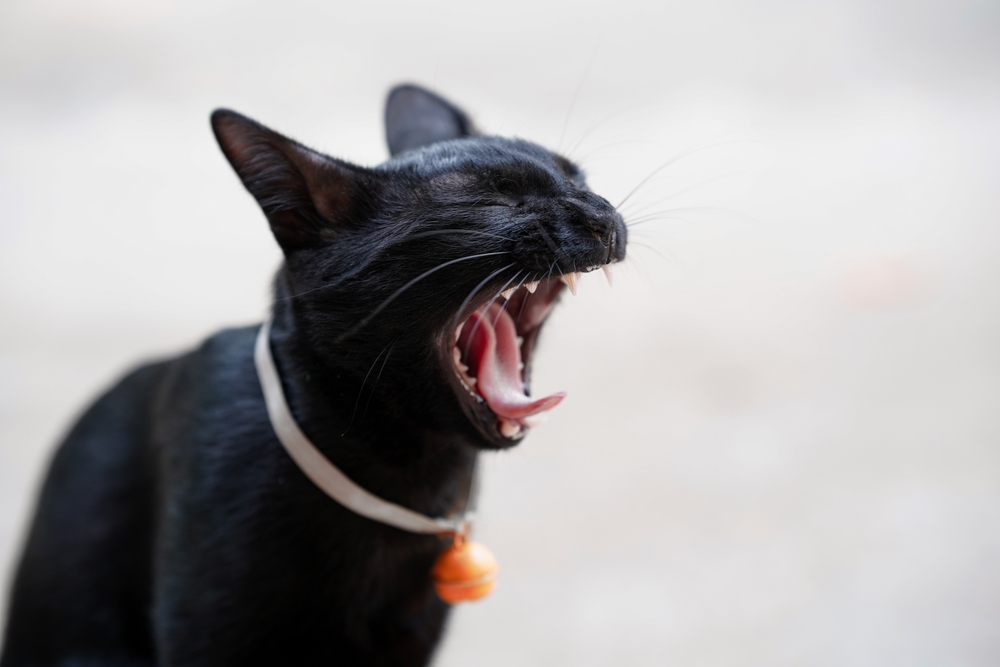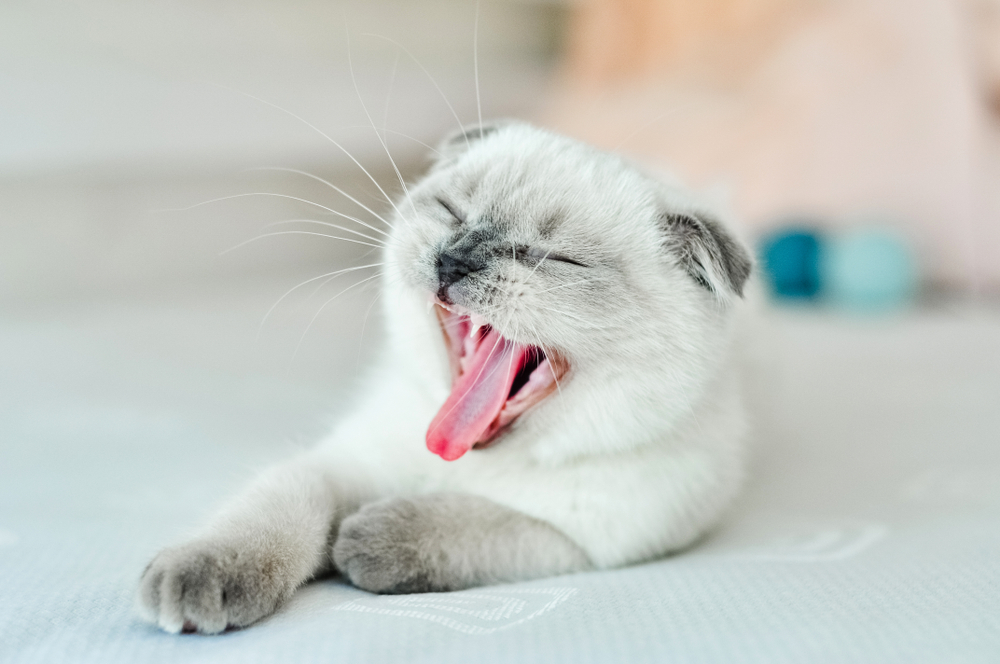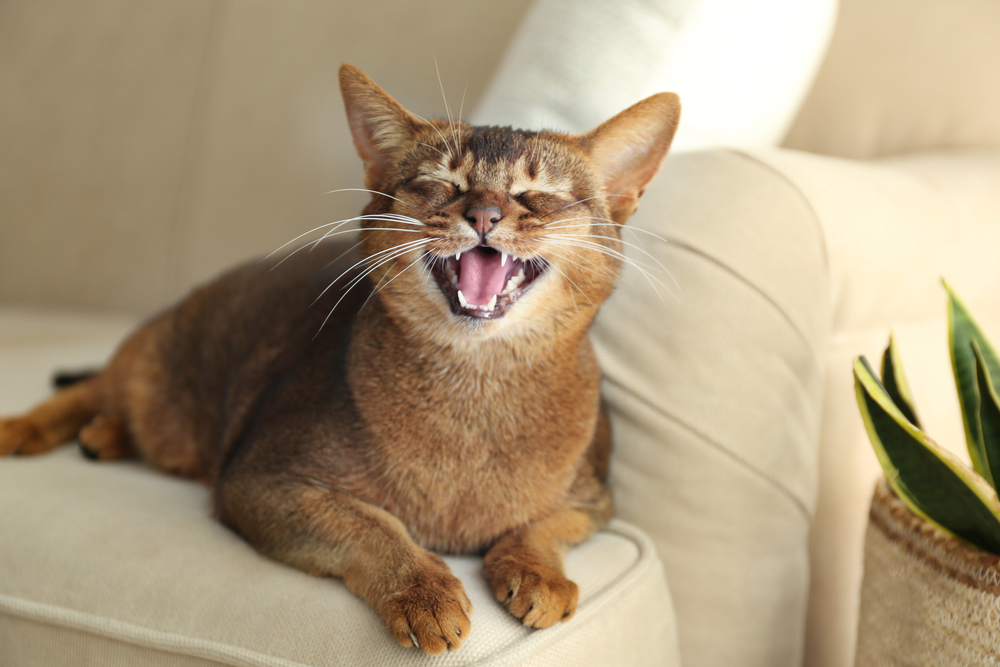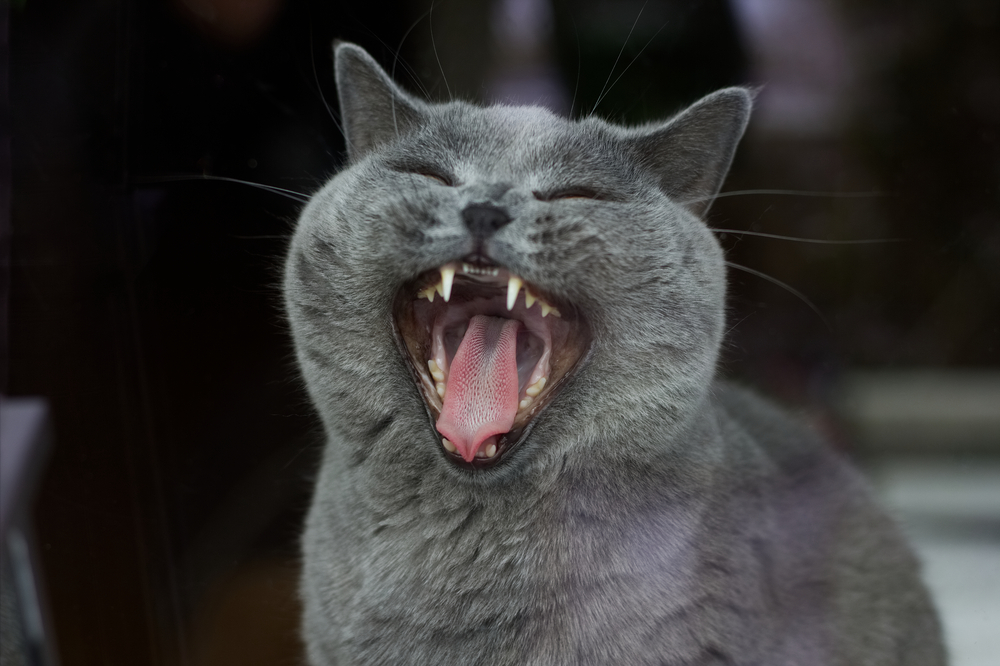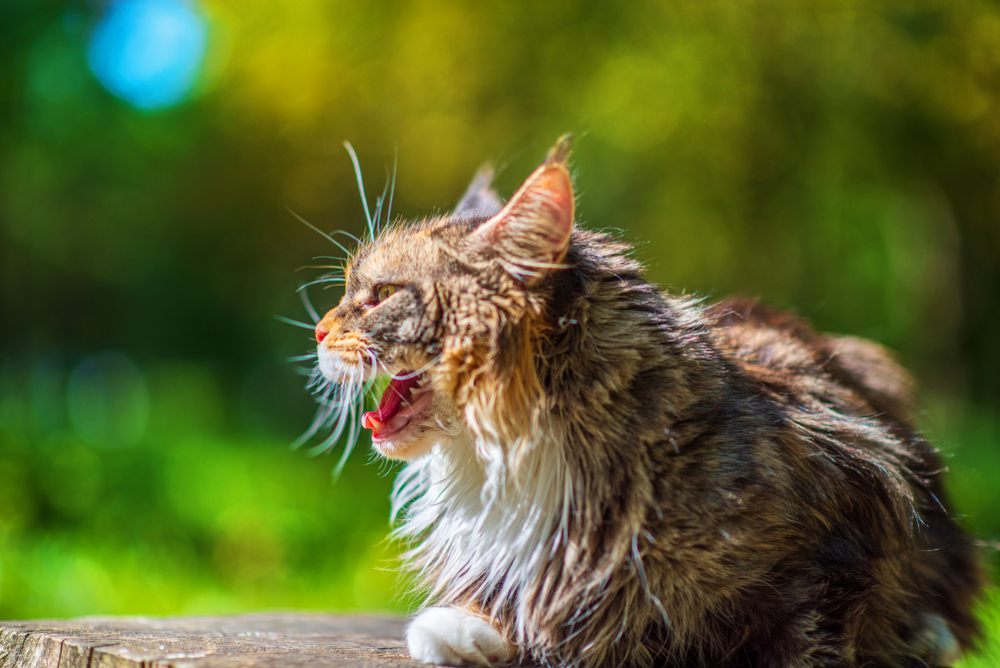📖 Table of Content:
“What’s the problem with female cats that are in heat – why do they produce tortured ghost sounds when they’re searching for males to mate with? And why is my spayed female cat yowling?” We often get these questions from cat owners whose purrincesses start acting up.
Spaying your female feline friend is supposed to make your troubles go away. Whether you were tormented by the neverending breeding behavior or the solo concerts you were forced to attend at 3 a.m. every morning, chances are you turned to your vet for advice.
Vets recommend spaying because of numerous studies stating that spayed cats live happier and healthier lives – and don’t resort to communication methods that make you want to go Vincent van Gogh on your ears. Yowling might not be pleasant, but there’s a reason why cats yowl rather than meow or purr.
Moreover, there’s a reason your spayed female cat is yowling weeks after her surgery. Whatever your cat’s reasons might be, know that you’re always better off contacting your vet and scheduling an appointment rather than overthinking and overanalyzing everything she’s been doing post-op.
More on that down below!
Why do cats yowl?
Yowling is a form of communication your cat uses when she’s trying to catch the attention of your neighborhood tomcats.
More times than not, yowling is specific to the heat cycle. This pretty much means that the one time your cat decides to start screaming her little heart out is when she’s in heat. Yowls are meant to be annoying, attention-getting, and different from meowing.
Sounds that your cat produces when she’s hanging out with you, napping on the floor, or looking through the window send some sort of a message to you or other cats.
Cats don’t meow at other cats, but there are times when they try to communicate with each other by resorting to sounds rather than physical contact, eye contact, or chemical cues. Contrary to popular belief, cats exhibit subtle signaling that oftentimes goes unnoticed by the human eye.
Yowling, however, never goes unnoticed. Not to worry, it’s a perfectly natural, normal response to the changes your cat’s body goes through when she’s experiencing estrus or heat.
Now, getting your cat spayed means getting rid of yowling – for the most part. When you get your cat spayed, you’re making sure she doesn’t experience heat-related symptoms such as excessive affection, rubbing, restlessness, attempting to escape home to find a mate, and – you guessed it – yowling.
If your cat doesn’t stop yowling weeks after her surgery, you might want to contact your vet and schedule an appointment. Yowling can suggest other conditions, too, and you’re better off staying safe than sorry.
“Why is my spayed female cat yowling” you wonder? Let’s find out!
Why is my spayed female cat yowling?
1. Ovarian remnant syndrome
Starting with a diagnosis no pet parent wants to receive, there’s a chance your cat might be suffering from something referred to as ovarian remnant syndrome.
When your cat undergoes ovariohysterectomy (the proper term for spaying), the doctor removes her uterus and ovaries. After the recovery, your cat is supposed to stop experiencing symptoms of heat because she’s no longer hormonal. And that’s supposed to be the end of her reproductive struggles.
But there are times when the doctors accidentally leave a little bit of ovarian tissue behind and your cat’s estrogen kickstarts the production of progesterone.
Before her recovery is done, your cat might start showcasing symptoms such as yowling because of her progesterone triggering the same reproductive behaviors she experienced before surgery.
Contact your doctor the moment you suspect your cat’s symptoms might be related to ovarian remnant syndrome.
2. Stress or excitement
Moving on to something a little more manageable, we can’t disregard the possibility that your furry friend is yowling because she’s stressed out or excited due to the changes happening around her.
Whether she’s recovering at your parents’ apartment or responding to tons of get-well-soon wishes, she may be overwhelmed by everything that’s going on.
Yowling might be her way of saying “Leave me alone!” and we agree with her. Recovery can be a difficult, uncomfortable process for a kitto, and she’s better off resting and saving her strength rather than entertaining the guests.
3. Hormones
After you get your cat spayed, you want her to recover right away. And you expect her to go back to her regular shenanigans within the first week of recovery. A cat’s hormones, however, need anywhere between 6 and 8 weeks to settle after the surgery.
What do we mean by that? Well, your cat might start acting up due to her hormone changes. Although experiencing estrus is now physically impossible for her, she might experience similar symptoms, making her meow, yowl, and produce strange sounds you’ve never heard before.
And because she’s uncomfortable, she might even refuse to eat or sleep. At the end of the day, we always recommend contacting your vet and making sure your cat’s recovery is going according to plan.
4. Pain and pressure
We know you don’t want your cat to suffer, but it’s expected for your cat to still experience a bit of pain and pressure a few weeks after the surgery. When the surgery’s done, your cat’s left with a clean, straight incision wound that requires time and effort to heal.
Wounds hurt, and your cat’s wound might be causing her to yowl and growl when she’s in pain. What can you do to help her?
Keep her wound clean at all times. Check the area for redness, swelling, or discharge. Contact your vet if you notice any signs of bleeding, irritation, or infection.
The incision typically takes 10 to 14 days to fully heal. That’s why you need to calm down and be supportive of your cat’s recovery, too.
5. Territorial behavior
Cats are territorial animals, you probably already know that. Contrary to your fears, there’s a chance your cat’s tendency to yowl at 3 a.m. might not be related to her surgery recovery.
Cats typically showcase territorial behavior, rubbing themselves against the furniture, pawing at the pillows, or even headbutting the table. Your cat might be yowling for the same reason.
Before you dismiss this possibility, try to remember whether you’ve been hanging out with your neighbor’s dog recently or cat-sitting for a friend while she’s on vacation. When cats yowl to mark their territory, it’s typically because there’s another animal present that’s causing them to act up.
6. Attention-seeking
We brushed over the fact that every cat’s post-op recovery is different. Whether your fluffy friend’s annoyed at you no matter what you do or begging you for cuddles and treats no matter how many you’ve already given her, you need to be patient.
Yowling is typically a sign of a cat trying to get another cat’s attention. But when your cat’s recovering from surgery, she might be trying to get your attention the same way.
Observe her behavior and check whether she’s stalking you, staring at you, or even pawing at you when you’re going about your business. You should probably give her what she wants to make sure she’s happy.
7. Cognitive problems
Cats can experience cognitive problems, too. Disorientation, changes in the way she interacts with you or with other members of the family, vocalizations such as yowling, pooping or peeing outside the litter box, and refusing to eat or sleep might be suggestive of cognitive problems.
If your kitto shows symptoms of autism, anxiety, or even depression after being spayed, you might need to take her back to the vet to check whether something went wrong during the surgery.
Sure, hormones might affect her behavior, but not to the point where she can’t hold her balance or remember who you are.
8. Reproductive problems
Ovarian cysts and tumors are common among unspayed female cats, but what about the spayed ones? On one hand, spayed female cats shouldn’t be able to experience ovarian problems because they’ve had their ovaries surgically removed.
On the other, there’s always a possibility that a little bit of ovarian tissue remained there after the surgery and proved to be fertile ground for an ovarian cyst. We do need to underline that these occurrences are highly unlikely and that you shouldn’t freak out over them before you get a confirmation from your vet.
9. Senior cat problems
Are you a pet parent to a geriatric purrer who’s been yowling the days away and making you question everything you ever thought you knew about senior cats?
As with humans, cats’ cognitive health can change with age. When you catch your cat showing signs of lack of interest in playing, spatial disorientation, loss of interest in food and water, and yowling, you might want to check whether she’s suffering from dementia.
Contact your vet straight away and figure out the next steps to take.
10. UTIs
We’ve arrived at the end of the article with an uncomfortable case of UTIs.
Sometimes, cats develop urinary tract infections and disorders after getting spayed, so this is something you need to watch out for, too. When your cat starts urinating frequently, and crying or even yowling when urinating, contact your vet and get her the help she needs.
Good luck!

